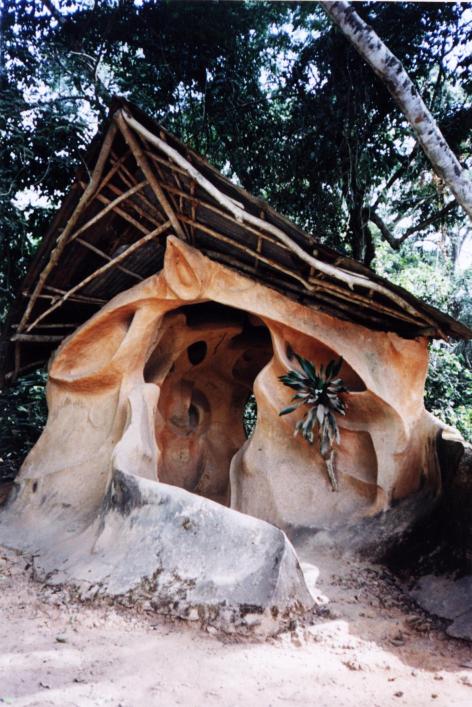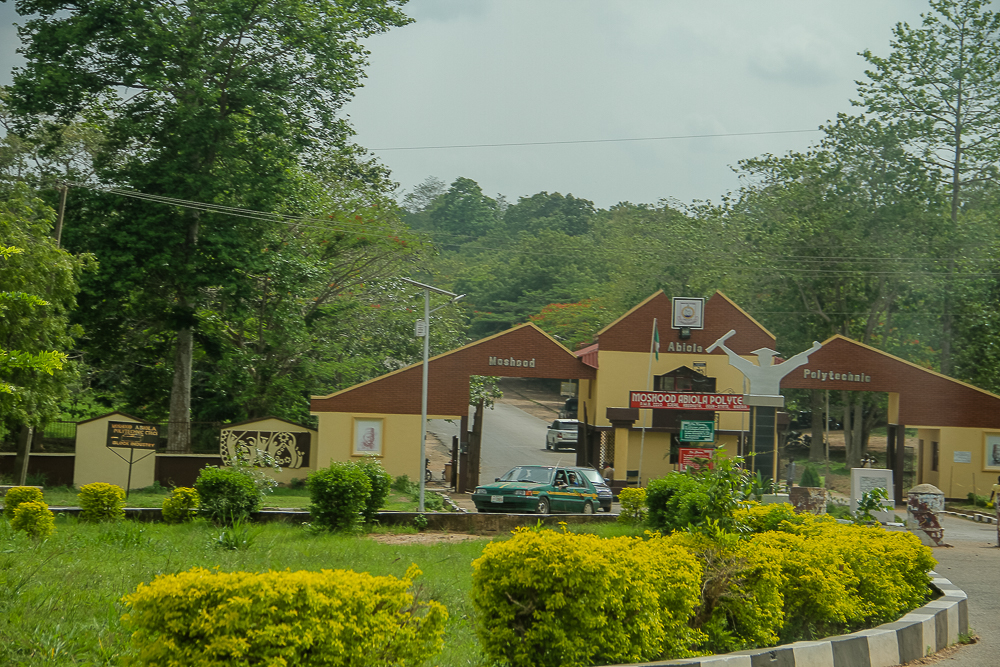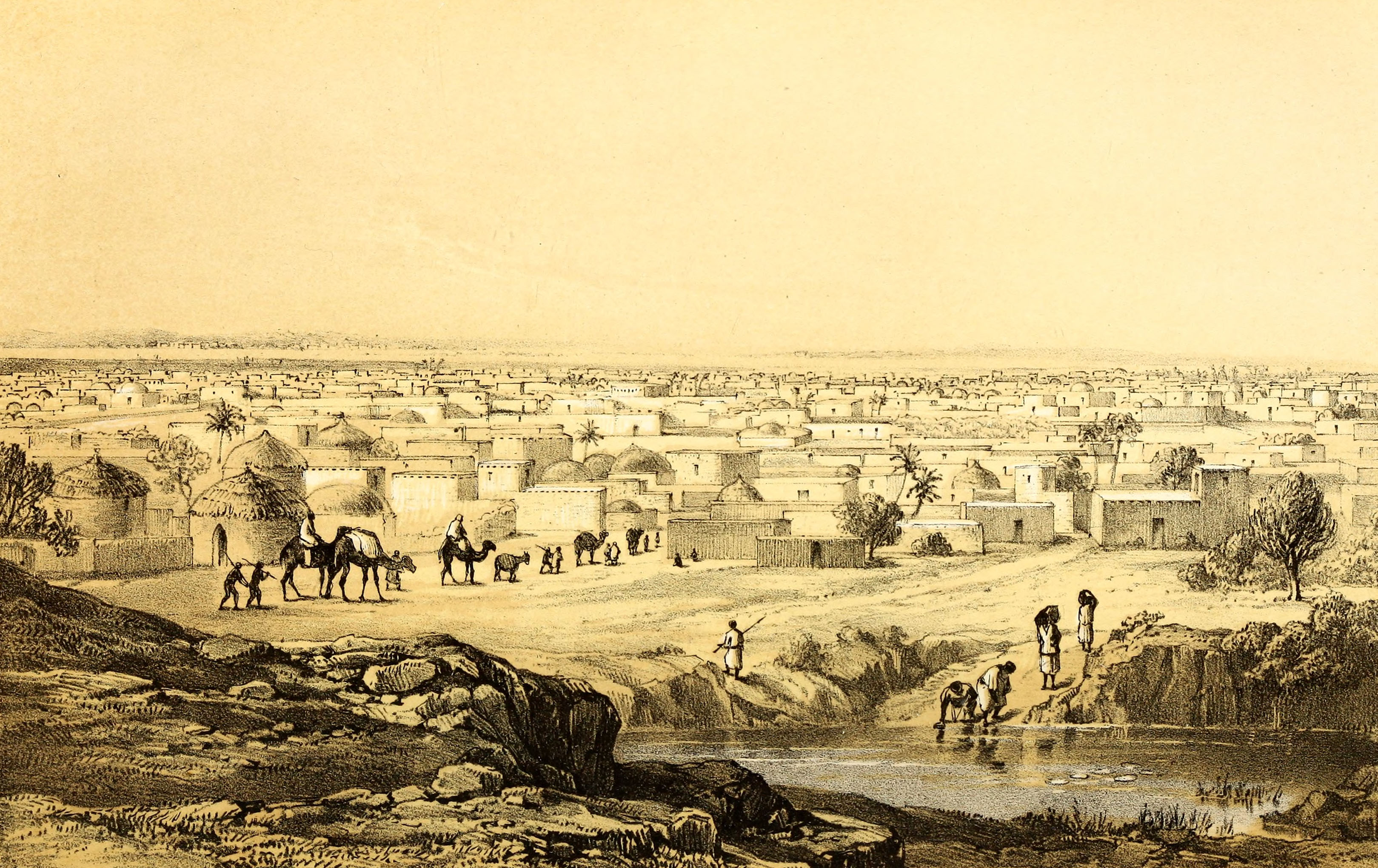|
Ganiyu Akanbi Bello
Alhaji Ganiyu Akanbi Bello (10 July 1930 – 5 June 2014) was a prominent Yoruba community leader and business tycoon. Background Dr. Alhaji G A Bello, a Yoruba community ambassador in Kano, was the chairman and chief executive of Criss Cross Ltd. He was popularly known as G A Bello. Bello was born in Oyo State, Nigeria on 10 July 1930 to Abdullahi Yusuf and Sinota Bello, the second of three children. Both parents died while he was a child and he was sent to live with his uncle who refused to send him to school. He left his uncle and started cutting wood in order to fund his school fees. Bello married Sakirat Ayoka Ogabi in approximately 1959. Their first child named Tawakalitu Bello Sanusi, was followed by Moriliatu Bisola Bello Sanusi, Basira Biodun Bello Oyefeso, and a son Nurudeen Bello. Between 1966 and 1967, during the Nigerian Civil War, known as the Biafran War, Bello sent his wife and children to Lagos while he remained in Kano. His family returned shortly after to ... [...More Info...] [...Related Items...] OR: [Wikipedia] [Google] [Baidu] |
Oyo State
Oyo State is an inland state in southwestern Nigeria. Its capital is Ibadan, the third most populous city in the country and formerly the second most populous city in Africa. Oyo State is bordered to the north by Kwara State, to the east by Osun State, and to the southwest by Ogun State and the Republic of Benin. With a projected population of 7,840,864 in 2016, Oyo State is the fifth most populous in the Nigeria. The vast majority of Oyo State residents are Yoruba, and the Yoruba language remains dominant. Nicknamed the "Pace Setter State", present-day Oyo State sits on territory formerly ruled by various kingdoms and empires. The Oyo Empire was a powerful Yoruba empire that ruled in much of the area from c. 1300 to 1896. Built in the 1830s, modern city of Oyo is considered a remnant of the imperial era, being referred to as "New Ọyọ" (''Ọ̀yọ́ Àtìbà'') to distinguish itself from the former capital to the north, 'Old Oyo' (''Ọ̀yọ́-Ilé''). The Alaafin of Oyo ... [...More Info...] [...Related Items...] OR: [Wikipedia] [Google] [Baidu] |
Naira
The naira (sign: ₦; code: NGN) is the currency of Nigeria. One naira is divided into 100 ''kobo''. The Central Bank of Nigeria (CBN) is the sole issuer of legal tender money throughout the Federal Republic of Nigeria. It controls the volume of money supplied in the economy in order to ensure monetary and price stability. The Currency Operations Department of the CBN is in charge of currency management, through the designs, procurement, distribution and supply, processing, reissue and disposal or disintegration of bank notes and coins. History The naira was introduced on 1 January 1973, replacing the Nigerian pound at a rate of £1 = ₦2 naira. The coins of the new currency were the first coins issued by an independent Nigeria, as all circulating coins of the Nigerian pound were all struck by the colonial government of the Federation of Nigeria in 1959, with the name of Queen Elizabeth II on the obverse. This also made Nigeria the last country in the world to abandon the � ... [...More Info...] [...Related Items...] OR: [Wikipedia] [Google] [Baidu] |
2014 Deaths
This is a list of deaths of notable people, organised by year. New deaths articles are added to their respective month (e.g., Deaths in ) and then linked here. 2022 2021 2020 2019 2018 2017 2016 2015 2014 2013 2012 2011 2010 2009 2008 2007 2006 2005 2004 2003 2002 2001 2000 1999 1998 1997 1996 1995 1994 1993 1992 1991 1990 1989 1988 1987 See also * Lists of deaths by day The following pages, corresponding to the Gregorian calendar, list the historical events, births, deaths, and holidays and observances of the specified day of the year: Footnotes See also * Leap year * List of calendars * List of non-standard ... * Deaths by year {{DEFAULTSORT:deaths by year ... [...More Info...] [...Related Items...] OR: [Wikipedia] [Google] [Baidu] |
1930 Births
Year 193 ( CXCIII) was a common year starting on Monday (link will display the full calendar) of the Julian calendar. At the time, it was known as the Year of the Consulship of Sosius and Ericius (or, less frequently, year 946 '' Ab urbe condita''). The denomination 193 for this year has been used since the early medieval period, when the Anno Domini calendar era became the prevalent method in Europe for naming years. Events By place Roman Empire * January 1 – Year of the Five Emperors: The Roman Senate chooses Publius Helvius Pertinax, against his will, to succeed the late Commodus as Emperor. Pertinax is forced to reorganize the handling of finances, which were wrecked under Commodus, to reestablish discipline in the Roman army, and to suspend the food programs established by Trajan, provoking the ire of the Praetorian Guard. * March 28 – Pertinax is assassinated by members of the Praetorian Guard, who storm the imperial palace. The Empire is auctioned o ... [...More Info...] [...Related Items...] OR: [Wikipedia] [Google] [Baidu] |
Osun State
Osun State (; yo, Ìpínlẹ̀ Ọ̀ṣun), occasionally known as the State of Osun by the state government, is a state in southwestern Nigeria; bounded to the east by Ekiti and Ondo states, to the north by Kwara State, to the south by Ogun State and to the west by Oyo State. Named for the River Osun—a vital river which flows through the state—the state was formed from the southeast of Oyo State on 27 August 1991 and has its capital as the city of Osogbo. Of the 36 states of Nigeria, Osun is the ninth smallest in area and nineteenth most populous with an estimated population of about 4.7 million as of 2016. Geographically, the state is divided between the Nigerian lowland forests in most of the state and the drier Guinean forest–savanna mosaic in the north. The major geographical features are rivers including the state's namesake, the River Osun which bisects the state's interior before forming much of the state's southwestern border with Oyo State and flowing south. ... [...More Info...] [...Related Items...] OR: [Wikipedia] [Google] [Baidu] |
Ogun (state)
Ogun State is a state in southwestern Nigeria. Created on 3 February 1976 from the former Western State. Ogun State borders Lagos State to the south, Oyo State and Osun State to the north, Ondo State to the east, and the Republic of Benin to the west. Abeokuta is both Ogun State's capital and most populous city; other important cities in the state include Ijebu Ode, the royal capital of the Ijebu Kingdom, and Sagamu, Nigeria's leading kola nut grower. Ogun state is covered predominantly by rain forest and has wooden savanna in the northwest . Ogun State had a total population of 3,751,140 residents as of 2006, making Ogun State the 16th most populated state in Nigeria In terms of landmass, Ogun State is the 24th largest State in Nigeria with land area of 16,762 kilometer square. Nicknamed the "Gateway to Nigeria", the state is notable for having a high concentration of industrial Estates and being a major manufacturing hub in Nigeria. Major factories in Ogun include the Dangote ... [...More Info...] [...Related Items...] OR: [Wikipedia] [Google] [Baidu] |
Rotary International
Rotary International is one of the largest service organizations in the world. Its stated mission is to "provide service to others, promote integrity, and advance world understanding, goodwill, and peace through hefellowship of business, professional, and community leaders". It is a non-political and non-religious organization. Membership is by invitation and based on various social factors. There are over 46,000 member clubs worldwide, with a membership of 1.4 million individuals, known as Rotarians. History The first years of the Rotary Club The first Rotary Club was formed when attorney Paul P. Harris called together a meeting of three business acquaintances in downtown Chicago, United States, at Harris's friend Gustave Loehr's office in the Unity Building on Dearborn Street on February 23, 1905. In addition to Harris and Loehr (a mining engineer and freemason), Silvester Schiele (a coal merchant), and Hiram E. Shorey (a tailor) were the other two who attended this ... [...More Info...] [...Related Items...] OR: [Wikipedia] [Google] [Baidu] |
Ado Bayero
Ado Bayero CFR, LLD, JP (25 July 1930 – 6 June 2014) was the Emir of Kano from 1963 to 2014. Early life Lineage Ado Bayero was born on 25 July 1930 into the royal family of the Fulani Sullubawa clan that has ruled over the Emirate of Kano since 1819. His father was Abdullahi Bayero and mother Hajiya Hasiya. He was the eleventh child of his father and the second of his mother. At the age of seven, he was sent to live with Maikano Zagi. His father reigned for 27 years. Muhammadu Sanusi I who was Ado Bayero's half brother ruled after their father from 1953 to 1963. Following his dethronement in 1963, Muhammadu Inuwa ascended the throne for three months. Early life and education He started his education in Kano studying Islam, after which he attended Kano Middle School (Rumfa College, Kano). He graduated from the School of Arabic Studies in 1947. He then worked as a bank clerk for the Bank of British West Africa until 1949, when he joined the Kano Native Authority. He a ... [...More Info...] [...Related Items...] OR: [Wikipedia] [Google] [Baidu] |
Kano (city)
Kano (Ajami: كانو) is a city in northern Nigeria and the capital of Kano State. It is the second largest city in Nigeria after Lagos, with over four million citizens living within ; located in the Savanna, south of the Sahel, Kano is a major route of the trans-Saharan trade. The city has been a trade and human settlement for millennia. It is the traditional state of the Dabo dynasty who since the 19th century have ruled as emirs over the city-state. Kano Emirate Council is the current traditional institution inside the city boundaries of Kano, and under the authority of the Government of Kano State. The city is one of the medieval Hausa seven kingdoms and the principal inhabitants of the city are the Hausa people. Centuries before British colonization, Kano was strongly cosmopolitan with settled populations of Arab, Berber, Tuareg, Kanuri and Fula and remains so with the Hausa language spoken as a lingua-franca by over 70 million speakers in the region. Islam arrived i ... [...More Info...] [...Related Items...] OR: [Wikipedia] [Google] [Baidu] |
Nigeria Police Force
The Nigeria Police Force is the principal law enforcement and the lead security agency in Nigeria. Designated by the 1999 constitution as the national police of Nigeria with exclusive jurisdiction throughout the country, as at 2016 it has a staff strength of about 371,800. There are currently plans to increase the force to 650,000, adding 280,000 new recruits to the existing 370,000. The Nigeria Police Force is a very large organisation consisting of 36 State commands and Federal Capital Territory (FCT) grouped into 17 zones and 8 administrative organs. The agency is currently headed by IGP (Inspector General) Usman Alkali Baba. In 2020, it underwent major overhauls. History of Nigeria Police Force In 1879 a 1,200-member armed paramilitary Hausa Constabulary was formed. In 1896 the Lagos Police was established. More so, the Niger Coast Constabulary, was formed in Calabar in 1894 under the newly proclaimed Niger Coast Protectorate. In the north, the Royal Niger Company set up ... [...More Info...] [...Related Items...] OR: [Wikipedia] [Google] [Baidu] |
Measles
Measles is a highly contagious infectious disease caused by measles virus. Symptoms usually develop 10–12 days after exposure to an infected person and last 7–10 days. Initial symptoms typically include fever, often greater than , cough, runny nose, and inflamed eyes. Small white spots known as Koplik's spots may form inside the mouth two or three days after the start of symptoms. A red, flat rash which usually starts on the face and then spreads to the rest of the body typically begins three to five days after the start of symptoms. Common complications include diarrhea (in 8% of cases), middle ear infection (7%), and pneumonia (6%). These occur in part due to measles-induced immunosuppression. Less commonly seizures, blindness, or inflammation of the brain may occur. Other names include ''morbilli'', ''rubeola'', ''red measles'', and ''English measles''. Both rubella, also known as ''German measles'', and roseola are different diseases caused by unrelated viruses. Mea ... [...More Info...] [...Related Items...] OR: [Wikipedia] [Google] [Baidu] |






.jpg)

